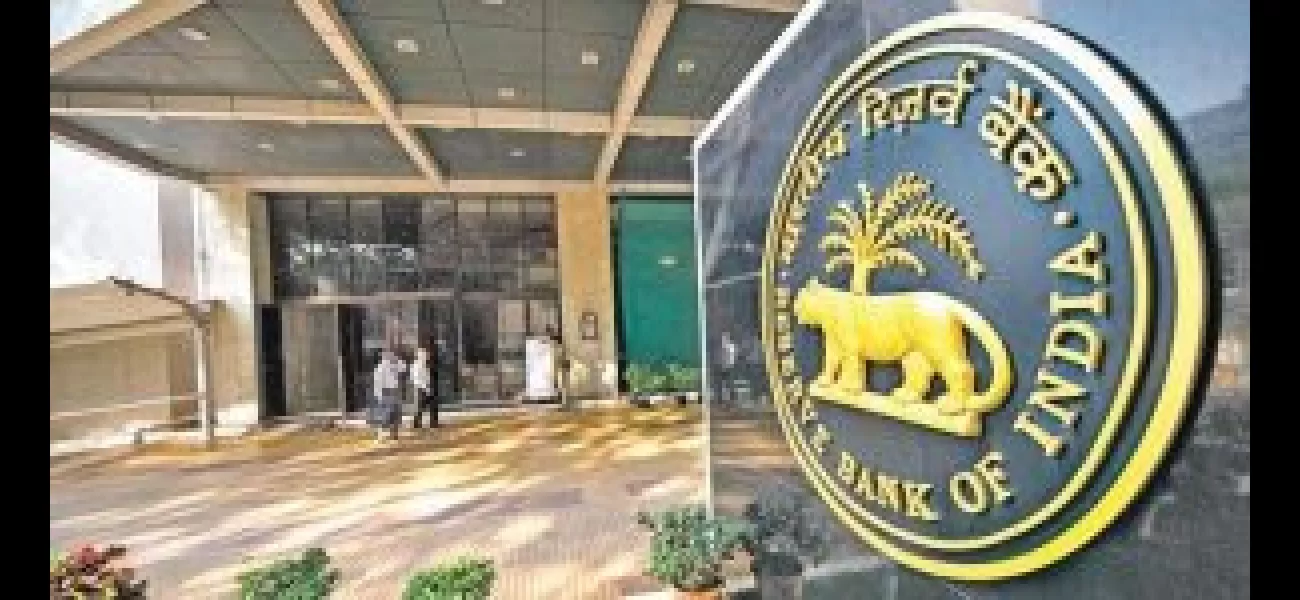RBI raises bulk deposit limit to Rs 3 crore from Rs 2 crore to improve asset liability management.
The Reserve Bank of India raised the minimum amount for bulk fixed deposits to Rs 3 crore from Rs 2 crore in order to enhance banks' asset liability management. This type of deposit typically earns a slightly higher interest rate than retail term deposits.
June 7th 2024.

Mumbai: In an effort to enhance the financial management of banks, the Reserve Bank of India (RBI) announced on Friday that it has increased the threshold for bulk fixed deposits from Rs 2 crore to Rs 3 crore. This means that banks will now offer slightly higher interest rates for bulk fixed deposits compared to retail term deposits, as part of their liquidity management exercise.
The new policy also includes a change in the definition of bulk deposits, which will now be considered as "Single Rupee term deposits of Rs 3 crore and above" for Scheduled Commercial Banks (SCBs) and Small Finance Banks (SFBs). This will bring consistency to the classification of bulk and retail deposits. Additionally, Local Area Banks will now have a bulk deposit limit of "Single Rupee term deposits of Rs 1 crore and above", similar to that of Regional Rural Banks (RRBs).
RBI Governor Shaktikanta Das, while announcing the bi-monthly policy, stated that this revision is a routine review and is in line with the changing times. This change is expected to improve the asset liability management of banks. Deputy Governor Swaminathan J also shared his views during a media interaction, stating that there may not be a systemic impact due to this change, but it may have varying effects on different entities depending on how they manage their liabilities.
To promote ease of doing business, the RBI has also proposed to streamline guidelines for the export and import of goods and services under the Foreign Exchange Management Act, 1999. According to Governor Das, this move is in line with the progressive liberalization of foreign exchange regulations and will provide greater flexibility to authorized dealer banks. Draft guidelines will be released soon for feedback from stakeholders.
In the realm of digital payments, the RBI has proposed to establish a Digital Payments Intelligence Platform to enable real-time data sharing and network level intelligence across the digital payments ecosystem. This initiative is aimed at preventing and mitigating digital payment frauds, which have been on the rise. A committee has been formed to examine the various aspects of setting up this platform.
Governor Das also highlighted the RBI's efforts to encourage innovation in the fintech sector, including the "HaRBInger - Innovation for Transformation" global hackathon. The third edition of this hackathon, "HaRBInger 2024", will be launched shortly with two themes - "Zero Financial Frauds" and "Being Divyang Friendly". This shows the RBI's commitment to promoting a safe and secure digital payment system.
The new policy also includes a change in the definition of bulk deposits, which will now be considered as "Single Rupee term deposits of Rs 3 crore and above" for Scheduled Commercial Banks (SCBs) and Small Finance Banks (SFBs). This will bring consistency to the classification of bulk and retail deposits. Additionally, Local Area Banks will now have a bulk deposit limit of "Single Rupee term deposits of Rs 1 crore and above", similar to that of Regional Rural Banks (RRBs).
RBI Governor Shaktikanta Das, while announcing the bi-monthly policy, stated that this revision is a routine review and is in line with the changing times. This change is expected to improve the asset liability management of banks. Deputy Governor Swaminathan J also shared his views during a media interaction, stating that there may not be a systemic impact due to this change, but it may have varying effects on different entities depending on how they manage their liabilities.
To promote ease of doing business, the RBI has also proposed to streamline guidelines for the export and import of goods and services under the Foreign Exchange Management Act, 1999. According to Governor Das, this move is in line with the progressive liberalization of foreign exchange regulations and will provide greater flexibility to authorized dealer banks. Draft guidelines will be released soon for feedback from stakeholders.
In the realm of digital payments, the RBI has proposed to establish a Digital Payments Intelligence Platform to enable real-time data sharing and network level intelligence across the digital payments ecosystem. This initiative is aimed at preventing and mitigating digital payment frauds, which have been on the rise. A committee has been formed to examine the various aspects of setting up this platform.
Governor Das also highlighted the RBI's efforts to encourage innovation in the fintech sector, including the "HaRBInger - Innovation for Transformation" global hackathon. The third edition of this hackathon, "HaRBInger 2024", will be launched shortly with two themes - "Zero Financial Frauds" and "Being Divyang Friendly". This shows the RBI's commitment to promoting a safe and secure digital payment system.
[This article has been trending online recently and has been generated with AI. Your feed is customized.]
[Generative AI is experimental.]
0
0
Submit Comment





